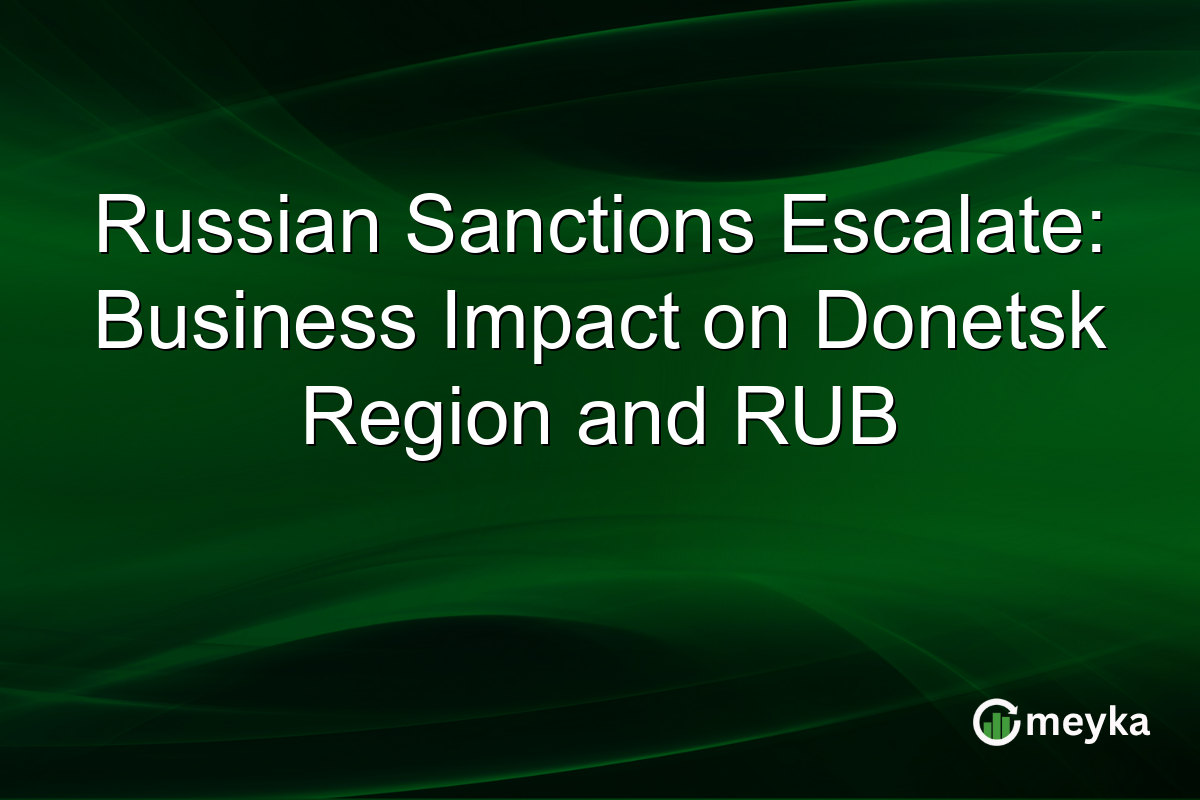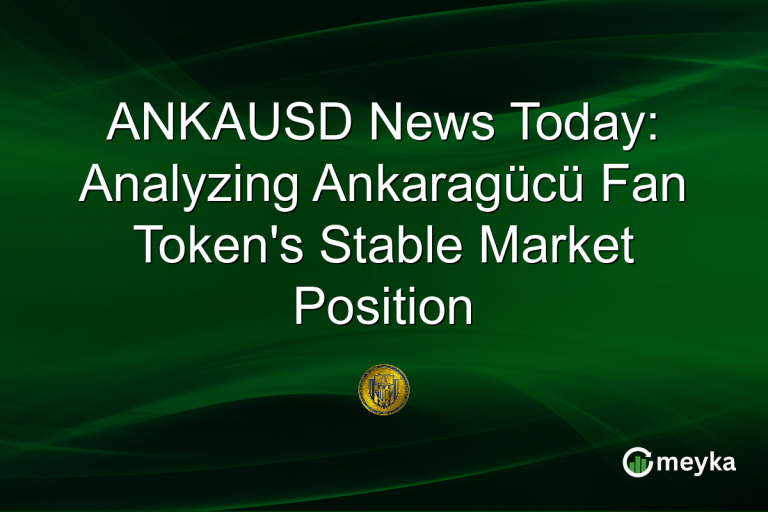Russian Sanctions Escalate: Business Impact on Donetsk Region and RUB
Today, significant economic shifts are unfolding as Western nations intensify sanctions on Russian-occupied territories, including Donetsk. These measures directly affect the region’s businesses, disturb cross-border transactions, and impact the Russian ruble (RUB=X). Analysts warn that these sanctions could exacerbate volatility in financial markets, posing increased risks for companies operating within these areas.
The Broader Economic Impact of Sanctions
Western sanctions on the Donetsk region are part of a strategic response to geopolitical tensions. Specifically targeting economic activities in this easterly region of Ukraine, the sanctions are designed to restrict Russia’s access to key resources and technology. This broad economic strategy aims to weaken Russia’s foothold in Eastern Ukraine—an area that relies heavily on cross-border trade and coordination. According to a Bloomberg report, these sanctions have already significantly curtailed business operations and sent shockwaves through the local economy. The swift implementation of these policies has caused international investors to reassess their exposure to the region, with many opting for safer markets. The increasing insulation affects the flow and productivity of business practices in Donetsk.
Effects on Donetsk Region Markets and Businesses
The Donetsk region, central to many industries, faces major challenges under the weight of new economic sanctions. With restrictions tightening, companies face hurdles such as limited access to global markets and financial services. This has led to a reduction in investment inflows crucial for business sustainability and growth. According to Reuters, businesses in Donetsk experience heightened operational costs and disrupted supply chains. The sanctions complicate transactions and limit opportunities for trade expansion, escalating economic risks in the area. Companies must now navigate these complexities to maintain stability.
Impact on the Russian Ruble and Financial Markets
The imposition of sanctions correlates strongly with fluctuations in the Russian ruble (RUB=X), reflecting investor uncertainties. The ruble continues its downward trajectory, impacted by restricted foreign capital flow and confidence in regional stability. Financial markets have witnessed increased volatility, prompting analysts to advise caution in dealings related to Russian assets. The effects on trading volumes and investment interests are pronounced, as seen in recent market analyses. Analysts fear that continued pressure on the ruble may spiral into broader economic distress, affecting not just Russia but interconnected markets worldwide. This shows a critical juncture where macroeconomic policies greatly influence currency valuations and the broader economic narrative.
Managing Increased Business Risks
Businesses operating in the Donetsk region face unprecedented risks due to these sanctions. Managing these involves strategic realignment and risk mitigation strategies. Companies must engage in comprehensive risk assessments while exploring alternative markets for resource diversification. Legal compliance is crucial, and understanding evolving international laws can protect assets. For investors, observing market signals and maintaining a flexible approach becomes essential to navigate this uncertain environment. The current status underscores the importance of proactive risk management strategies in facing geopolitical and economic uncertainties.
Final Thoughts
The sanctions targeting the Donetsk region illustrate the power of international policy measures in shaping economic landscapes. With the Russian ruble’s depreciation and heightened market volatility, businesses must adapt swiftly to these changes. Stakeholders in the area face the ongoing challenge of managing disruptions and exploring risk mitigation strategies. Exploring alternative markets, tightening cost controls, and adapting to new legal frameworks are essential steps forward. Ultimately, the long-term economic impact will depend on both geopolitical developments and regional adaptability to persistent challenges. The resilience and innovation of businesses, alongside strategic international alliances, will play a pivotal role in navigating this complex situation.
FAQs
Sanctions restrict access to international markets and financial services, leading to increased operational costs and supply chain disruptions. Companies in Donetsk experience reduced investment and higher challenges in trade expansion, which significantly impact their business sustainability.
Sanctions have caused the ruble to depreciate, reflecting investor concerns and reduced foreign capital flow. This has increased volatility in financial markets, affecting trading volumes and investor confidence in Russian assets.
Investors may need to revisit risk assessments and consider focusing on markets with less geopolitical risk. The sustained pressure from sanctions suggests potential continued currency volatility. Strategic market diversification and careful monitoring of geopolitical developments are advised.
Disclaimer:
This is for information only, not financial advice. Always do your research.






